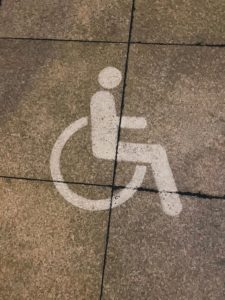Your Legal Options If You Are Paralyzed After a Car Accident

Being paralyzed after a car accident is one of the most severe injuries someone can suffer, impacting their lives in tremendous ways.
The Christopher Reeve Foundation reports that the average lifetime cost to treat a spinal cord injury for a 25-year-old is estimated at $1.7 Million to over $5 Million in 2020 US dollars. These estimates do not account for the other impacts on your life, such as lost wages or earning capacity.
If the accident was not your fault, you should not have to bear the cost alone—financially, emotionally, or physically. Pursuing a legal claim may not undo what’s been done to you, but it can help ease your financial burden.
FCHC Law provides compassionate and effective legal representation to injury victims throughout Texas and New Mexico.
For a free consultation, please call (800) 433-2408 or send us an online message today.
What Are My Legal Options If I’m Paralyzed After a Car Accident?
If you or your loved one suffered paralysis after a car accident because of someone else, you might have a legal claim against them. Your two primary ways of pursuing justice under the law are negotiating a settlement or going to trial.
Negotiate a Settlement with the At-Fault Party
One of your legal options is to negotiate a settlement with the at-fault party or their insurance company. You can do this before filing a lawsuit or after, so long as it is before the parties agree to go to trial.
In reaching a settlement negotiation, you and the other parties discuss what caused the accident and try to determine a fair financial award. You should talk to an experienced attorney before signing a settlement agreement. Many insurance companies try to offer quick-fix settlement offers to avoid paying out the claim’s actual value, especially with costly claims, such as car accident paralysis cases. An attorney can help shield you from this practice and help you get the compensation you deserve for your injuries.
Argue Your Case at Trial
If you and the other party are unable to reach a fair settlement about the car accident and compensation for your paralysis, you can file a lawsuit and proceed to go to trial instead. At trial, you and the opposing party present evidence and arguments to support each side of the case.
You or your attorney may argue the case before a jury (if a jury trial) or a judge (if a bench trial).
After the trial, the judge or jury decides who is at fault for the accident and how much you are to receive in compensation. If you disagree with the trial’s final outcome, you may have the option to appeal it.
Because of the importance of the case to your livelihood, it is essential to thoroughly prepare for trial, preferably with a lawyer’s help.
What Are the Different Types of Paralysis?
Spinal cord injuries can result in significant ways that alter the course of your life forever. Because of the pervasive nature of nerves, injuries to the brain or spinal cord can have a wide range of signs, symptoms, and recovery trajectories.
These conditions can be:
- Complete and incomplete;
- Temporary or permanent: and
- Affect a variety of body parts.
Let’s go over each type in turn.
Complete vs. Incomplete
Complete paralysis occurs when you lose all sensation and ability to control an area of the body. For example, if your leg is completely paralyzed, you can neither use nor feel it.
In contrast, incomplete paralysis is where you still retain some sensation or ability to move or control that area of the body. Someone with an incompletely paralyzed leg may be able to move their toes or feel hot or cold sensations. They may also experience tingling or numbness.
Temporary vs. Permanent
Temporary paralysis is not life-long and can last from an hour to several years. An example of temporary paralysis after a car accident is when someone has a stroke or suffers a head injury and loses sensation in their face or arm. If someone is permanently paralyzed, tragically, they may never be able to regain function or feeling in that area of the body.
Different Scopes of Paralysis
Paralysis may also impact different parts of the body.
The medical field divides up the types of paralysis into the following categories:
- Monoplegia. Monoplegia occurs when you have one paralyzed limb or area of the body, such as an arm.
- Diplegia. This type of paralysis affects the same parts of both sides of the body, such as your arms.
- Hemiplegia. Hemiplegia occurs when an entire side or hemisphere of your body is paralyzed or both your arm and leg on one side are paralyzed.
- Paraplegia. Someone with paraplegia is paralyzed from the waist down.
- Quadriplegia (tetraplegia). Quadriplegia is where all of someone’s limbs are paralyzed. In some cases, the person’s organs may also be affected.
- Locked-In Syndrome. In rare cases, someone’s entire body can be paralyzed except for the muscles that control their eyes.
Depending on the type of paralysis you experience, the costs to treat these injuries can be extensive. If another driver or person caused you to be paralyzed in a car accident, you might file a lawsuit against them to recover compensation for your medical and other expenses.
We Fight for Injury Victims and Their Families
For over 38 years, FCHC Law has provided professional and reliable legal services to communities throughout Texas and New Mexico. If you or your loved one were paralyzed after a car accident, contact us online or call us at (800) 433-2408 to schedule a free consultation.
